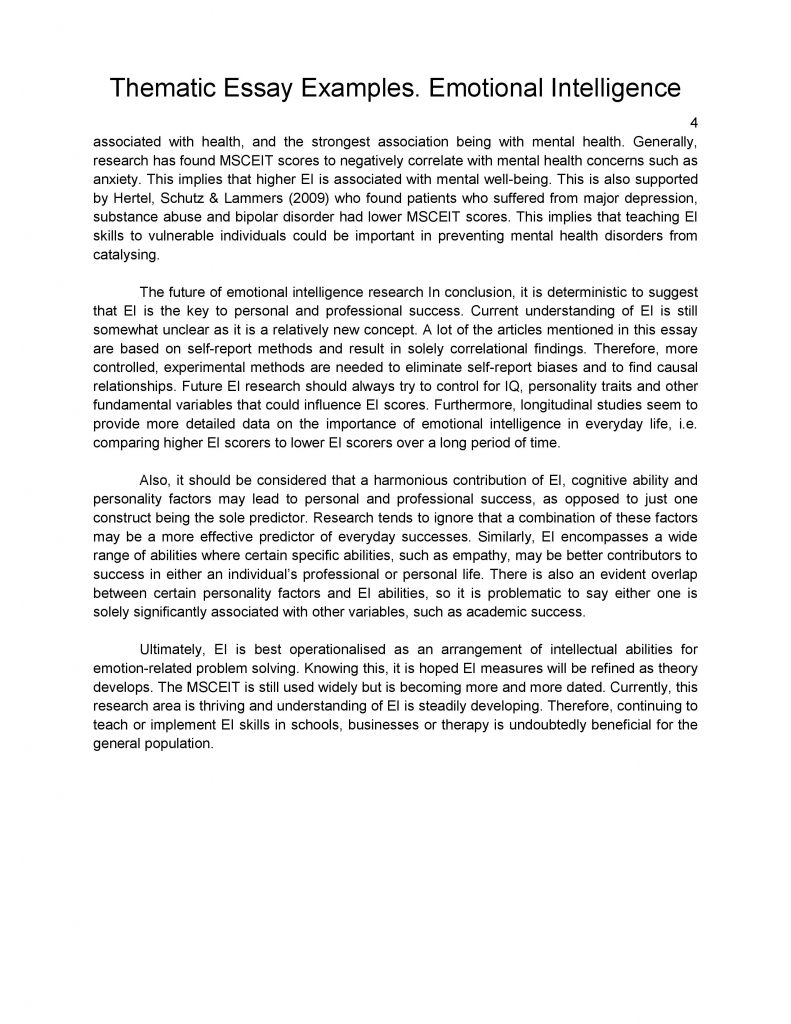The body paragraphs carry the discussion of the essay. Each paragraph should discuss one point. The first sentence of the body paragraph should be the topic sentence. In addition to this, students must back up their topic sentence with at least three concrete points. To support their topic sentence, writers of thematic papers should cite at least one piece of literature or literary device. This evidence should be directly related to the theme of the essay.
Identifying a theme
When you’re working on a thematic essay, the best way to stay on topic is to do a little research. It may be helpful to make an outline of your paper, which can help you identify the main points of your argument and give you structure for the writing process. The main theme of your paper should be apparent throughout the entire essay, and you should include examples, evidence, and transitions between paragraphs to make sure your readers know what you’re writing about.
The next step in identifying a theme when writing a thematic paper is determining its purpose. There are two general purposes that an author may use for the essay, and both of these purposes are influenced by their instructors. To write an effective thematic essay, learners must determine which general purpose is most important, and this early identification will influence the way they research and choose words during the drafting process.
Outlining a thematic essay
Outlining a thematic essay is a good way to organize your writing before you begin writing. Thematic essays are written about a particular theme or subject. They often compare two or more topics and focus on their similarities and differences. It is useful to outline the entire essay before you begin writing to make sure you are making the most effective use of your time. Thematic essays can also highlight connections between ideas in a larger work.
The main parts of a thematic essay are the introduction, the main body of the text, and the conclusion. When outlining your essay, you must choose a topic that has a clear focus and contribution to the reader’s education. Ideally, the essay should inspire and educate the reader, as well as make them think. Outlining a thematic essay is an essential skill for writing a good essay.
Including examples
There are two things to keep in mind when writing a thematic essay. First of all, you should narrow down your topic. When you read a piece of literature, the theme is the point that the author is making with the piece. The theme is often the most important lesson learned or the most commonly discussed topic. Secondly, you should choose a specific example of the theme. Third, choose a topic related to the theme that you are writing about. If you are writing about a novel, for instance, you might use the theme of death.
The third thing to keep in mind is to make your essay as complete as possible. Thematic essays can be useful in supplementing a literature course or for introducing a new subject to students. They are also an excellent way to encourage student exploration. Listed below are a few examples of thematic essays and how they can be used in a literature class. Make sure you know what your topic is before writing your essay.
Developing a thesis
Developing a thesis when writing a theme essay requires a certain structure. It should be integrated throughout the essay, and the evidence you provide in the body paragraphs should support that statement. As you write, you may need to revise and clarify your thesis statement, but a thematic essay outline will help you plan and organize your thoughts and develop your ideas. Below are some tips on developing a thesis when writing a thematic essay.
First of all, thematic essays require extensive research. An outline may be used to identify the main points of your argument, as well as a structure to follow when writing the paper. The paper should follow a certain theme, which will be apparent throughout the paper. Organization, evidence, examples, and transitions will also be crucial when writing a thematic essay. Make sure to follow all instructions carefully to ensure a strong, clear thesis.

